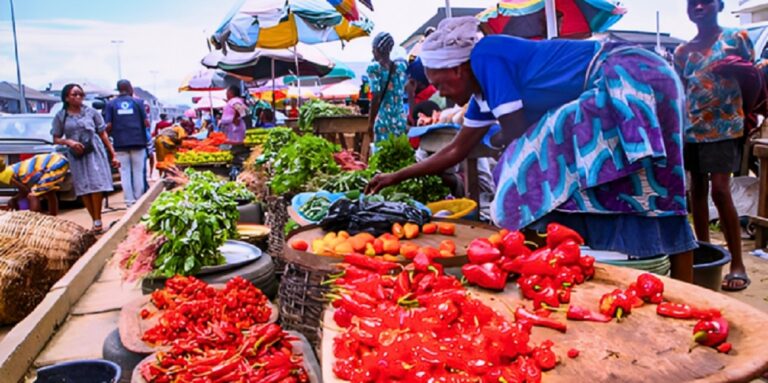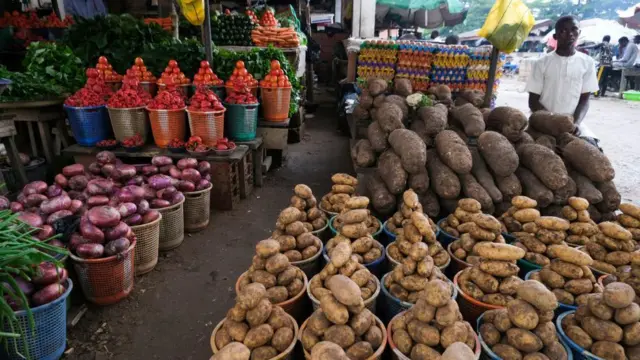Food prices across Nigeria soared by 91.6% in December 2024 compared to the same period last year, with the average cost rising from N1,524.63 in December 2023 to N2,920.13. The increase marks a marginal rise from November’s average of N2,862.14, according to the National Bureau of Statistics (NBS) report titled “Selected Food Price Watch December 2024.”
The report revealed significant regional variations in food prices across Nigeria’s six geopolitical zones. The Southeast region recorded the highest average food price at N3,484.48, up from N3,366.41 in November. In contrast, the Northwest reported the lowest average price at N2,526.72, a modest rise from N2,511.86 in the previous month. Other regions showed the following average prices for December:
The prices are: North Central: N2,732.00; North East: N2,799.19; South South: N3,159.44; and South West: N3,009.91.
The NBS report also highlighted the year-on-year and month-on-month changes in prices of specific food items. The average price of 1kg of beans (brown, sold loose) surged by 187.29% year-on-year to N2,501.32 in December 2024, compared to N870.67 in December 2023. However, it recorded an 8.07% decrease from November’s N2,720.96.

Onion Bulbs (1kg) prices jumped 111.74% year-on-year from N971.86 in December 2023 to N2,057.81 in December 2024. Every month, prices increased by 9.57% from N1,878.00 in November. Meanwhile, a litre of palm oil rose by 81.18% year-on-year, reaching N2,582.35 in December 2024, compared to N1,425.32 in December 2023. Month-on-month, it increased by 4.68% from N2,466.79 in November.
The NBS survey tracked the prices of about 40 food items, including rice, bread, fish, frozen chicken, garri, and groundnut oil, among others.
The rising food prices reflect the ongoing inflationary pressures impacting Nigerian households. Analysts attribute the price hikes to factors such as insecurity in food-producing regions, supply chain disruptions, and increased production costs.
The South-East’s status as the region with the highest food prices highlights significant regional disparities, contrasting with the more affordable food costs in the North-West.
According to PricewaterhouseCoopers (PwC), the surge in food prices and economic challenges may worsen food insecurity in Nigeria. The firm estimates that approximately 33.1 million Nigerians could face food insecurity by 2025. Additionally, PwC warns that 13 million more people may fall below the national poverty line, driven by inflation, persistent economic hardship, and ongoing violence in agricultural regions.


